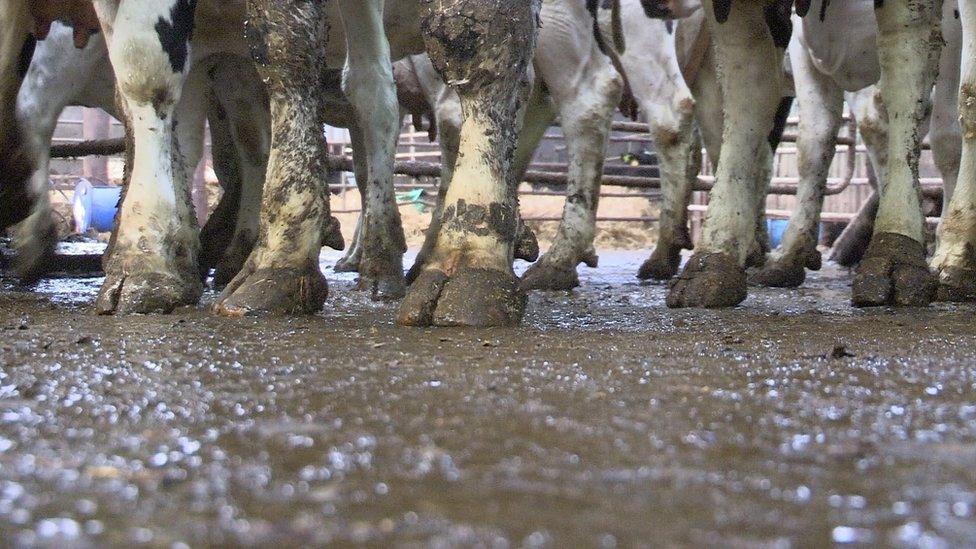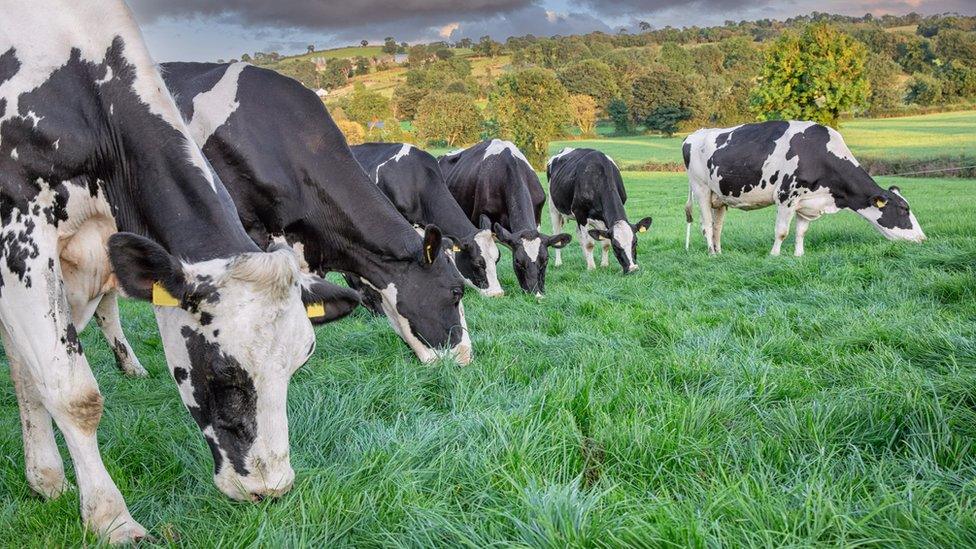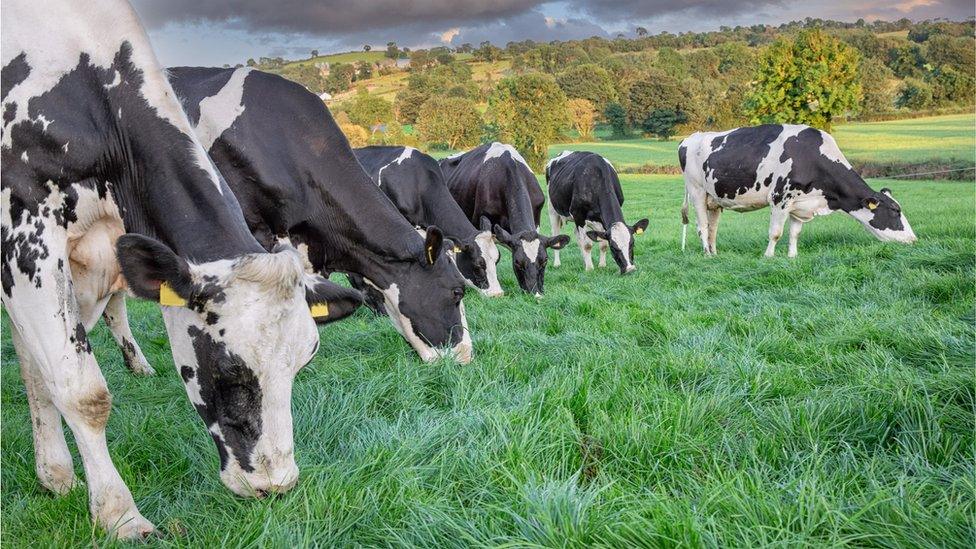Daera investigated by environment watchdog over ammonia guidance
- Published

Northern Ireland has a significant problem with ammonia, the bulk of which comes from agriculture
The UK's environment watchdog is investigating Stormont's Department of Agriculture, Environment and Rural Affairs (Daera).
It is the first investigation by the Office for Environmental Protection (OEP) in Northern Ireland.
It is concerned Daera breached environmental law in ammonia guidance - the Operational Protocol - for councils to use in making planning decisions.
Ammonia can negatively affect climate, health, biodiversity, external and water quality.
Daera said it would engage positively with the investigation.
Evidence shows 100% of special areas of conservation, 100% of special protection areas and 99.7% of areas of special scientific interest in Northern Ireland have ammonia concentrations at levels where significant harmful effects will occur.
Almost all Northern Ireland's current ammonia emissions - 97% - come from agriculture, which also plays a significant role in the local economy.
Some farmers have started using specialist slurry-spreading equipment and changing building construction to try to reduce their ammonia emissions.
The investigation was prompted by a number of complaints from a member of the public about individual planning decisions that gave rise to the risk of ammonia pollution.
"These relate predominantly to livestock installations and the effect that those livestock installations can have on the ammonia load in relation to those local habitats," Natalie Prosser, the OEP's chief executive said.

Natalie Prosser said time was of the essence in relation to the threat from ammonia pollution
"We've looked at all of those complaints which have come from here in Northern Ireland, and we've identified that there's this underlying theme of the Operational Protocol.
"Hence we've launched the investigation off the back of that assessment."

Analysis: Shining a spotlight on NI's environmental failures
By launching its first investigation in Northern Ireland and making a government department the focus of it, the OEP is showing it has teeth and is not afraid to use them.
But it shines a glaring spotlight on Northern Ireland's environmental failures.
Given that the department was warned repeatedly in recent years that its operational protocol was out of step with scientific and legal evidence, the question is why the situation has gone on so long.
And it shows that the longer Northern Ireland is unable to enact legislation at a local level, the more likely it is to fall short of standards, and the greater the gulf between it and its legally-binding environment targets will grow.

A consultation on a draft ammonia strategy, external was launched at the start of January 2023.
It included a call for evidence on a new Operational Protocol, to be published separately.
While the consultation has now closed, neither the strategy nor the Operational Protocol has been published in the absence of a agriculture minister.
That delay has also played a part in leading to the investigation announced by the OEP.
"We know that Daera is keen to update the Operational Protocol, but we haven't seen that move at the pace that we need to see, because time really is of the essence in relation to this threat from ammonia pollution," Ms Prosser said.
"So we do think that the Operational Protocol should be updated and we provided advice to DAERA on that front quite recently.
"But because we're not seeing the progress at the pace we'd like to see, we've decided to launch this investigation to look into it."
The draft ammonia strategy includes a target of 30% reduction in ammonia emissions from agriculture and reducing ammonia concentrations at all designated sites by 40% by 2030.
Figures from Daera showed ammonia levels rose by 19% between 2009 and 2019 "from an already very troubling baseline", Ms Prosser said.
She added that the report and findings of the investigation would be published when complete.
'In limbo'
Ulster Farmers' Union (UFU) president David Brown said they have been raising concerns about the planning process and how ammonia from farms is assessed for many years.
"We have been waiting for revised guidance from the Northern Ireland Environment Agency on this issue since late 2019 and wrote to minister Poots in early 2021, outlining our concerns and the need for new guidance to allow farmers to make informed decisions on their farm businesses," he said.
A lack of clarity with current protocol has resulted in several union members having planning applications "sitting in limbo" for several years, he said.
"We understand that a 'call for evidence' on a revised operational protocol is due soon and was unable to be launched earlier due to the purdah period in the run up to the council elections.
"We will engage with Daera on this and will co-operate with the Office of Environmental Protection during their investigation if our input is required."

What is the OEP?
The Office for Environmental Protection, external is a new environmental governance body, which holds the government and other public authorities in England and Northern Ireland to account on their environmental protection and improvement.
It also covers reserved UK-wide matters.
It advises the government and Northern Ireland Assembly on any changes to environmental law.
It has statutory powers to investigate and enforces compliance with environmental law where needed.
That enforcement can include legal action if unresolved through compliance with recommendations.

A spokesperson for Daera said the department "notes the announcement by the OEP that it intends to carry out an investigation into the advice given by the Department of Agriculture, Environment and Rural Affairs on ammonia emissions in Northern Ireland".
"Daera will, of course, engage positively with the OEP during the course of the investigation and looks forward to considering any recommendations which may result," they added.
Related topics
- Published15 March 2023

- Published16 February 2023
